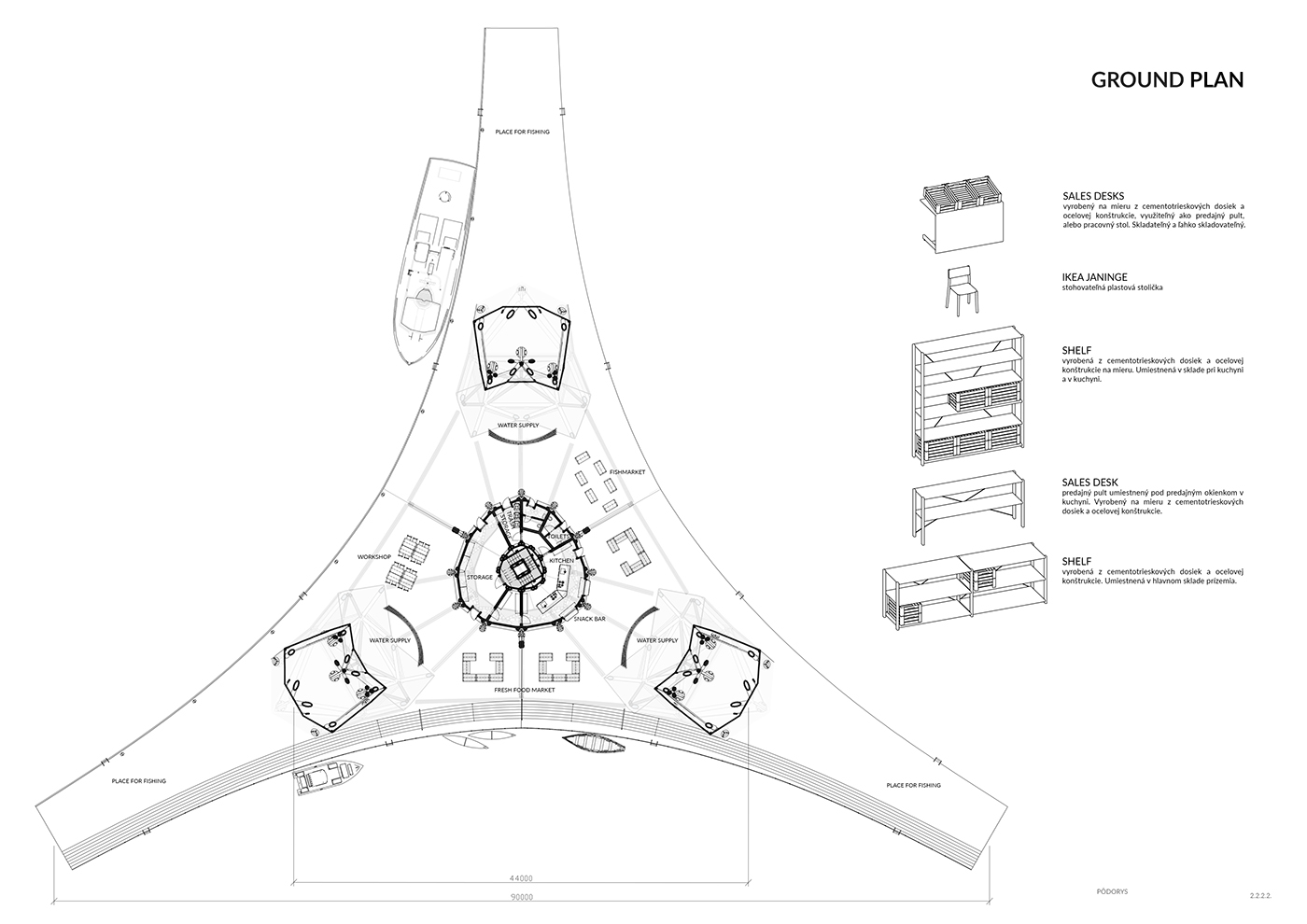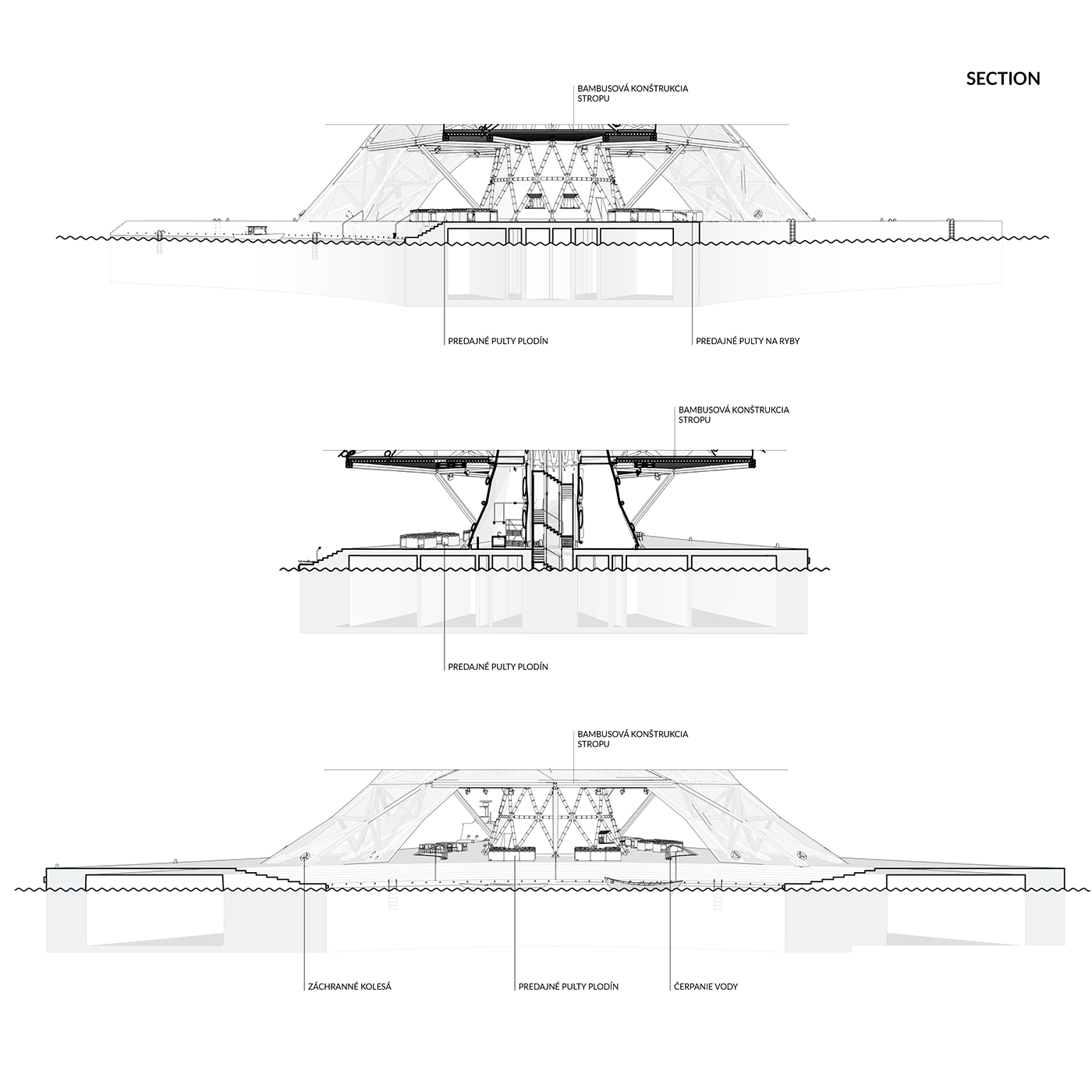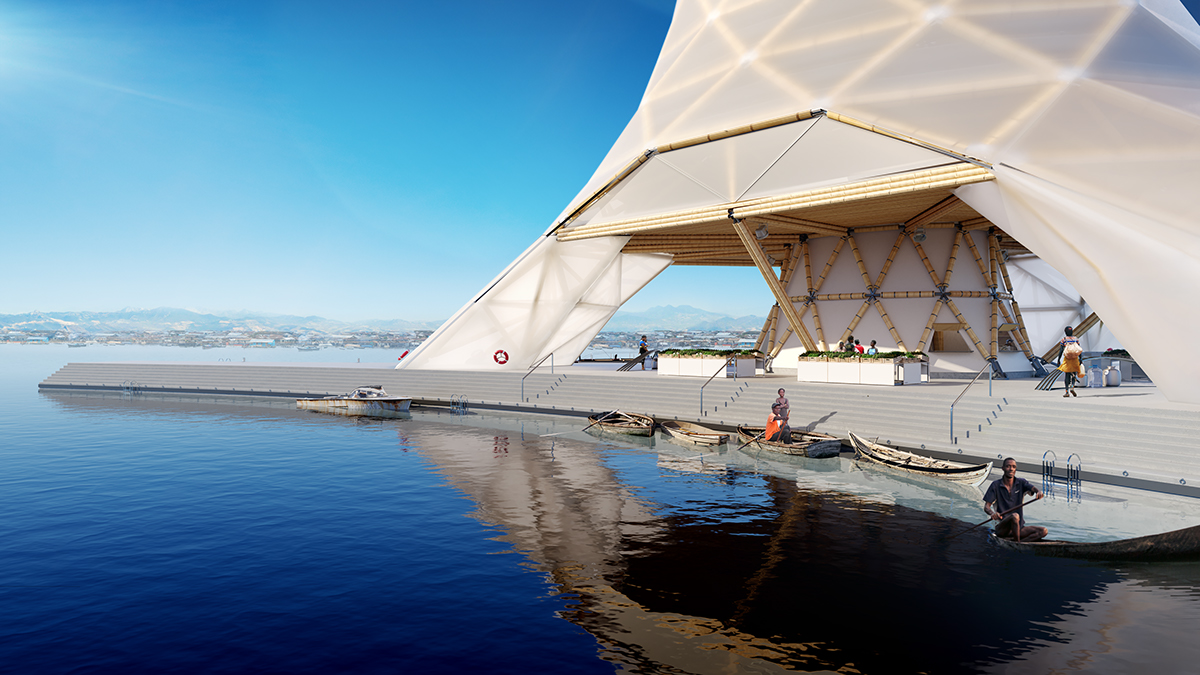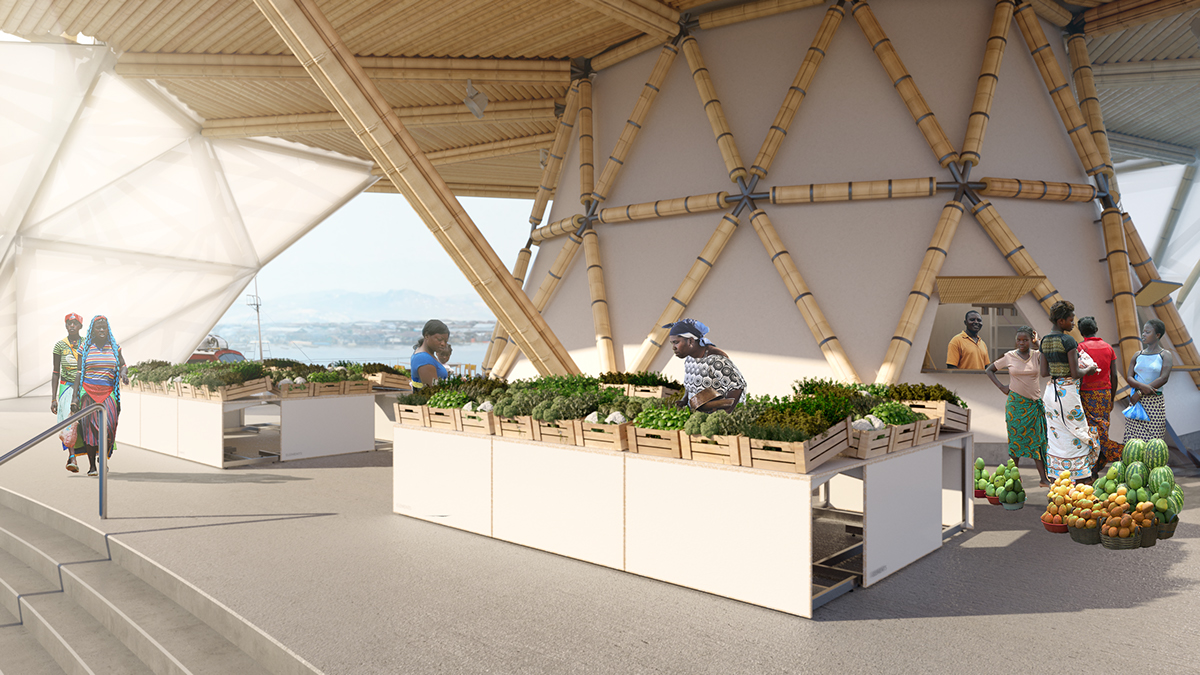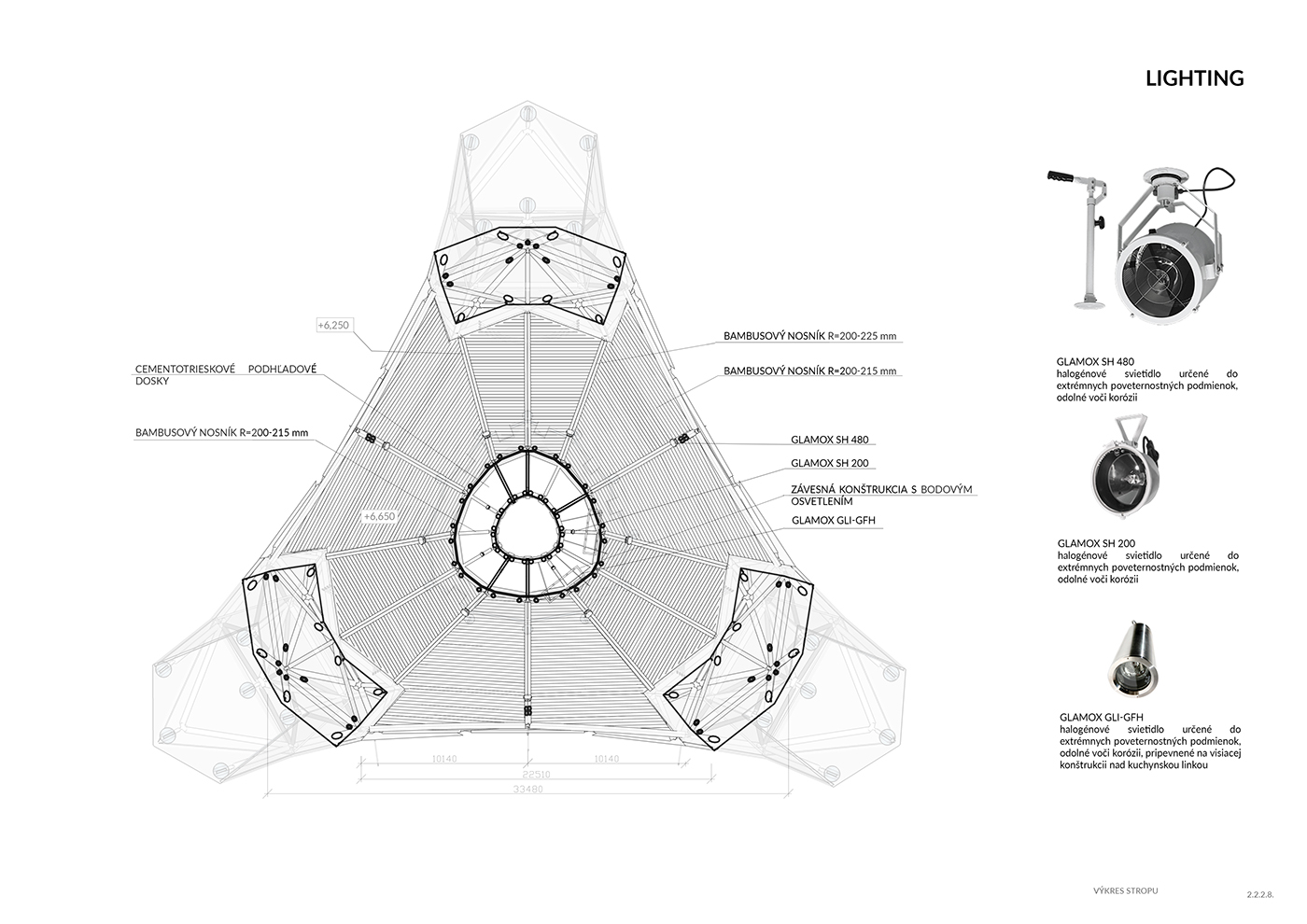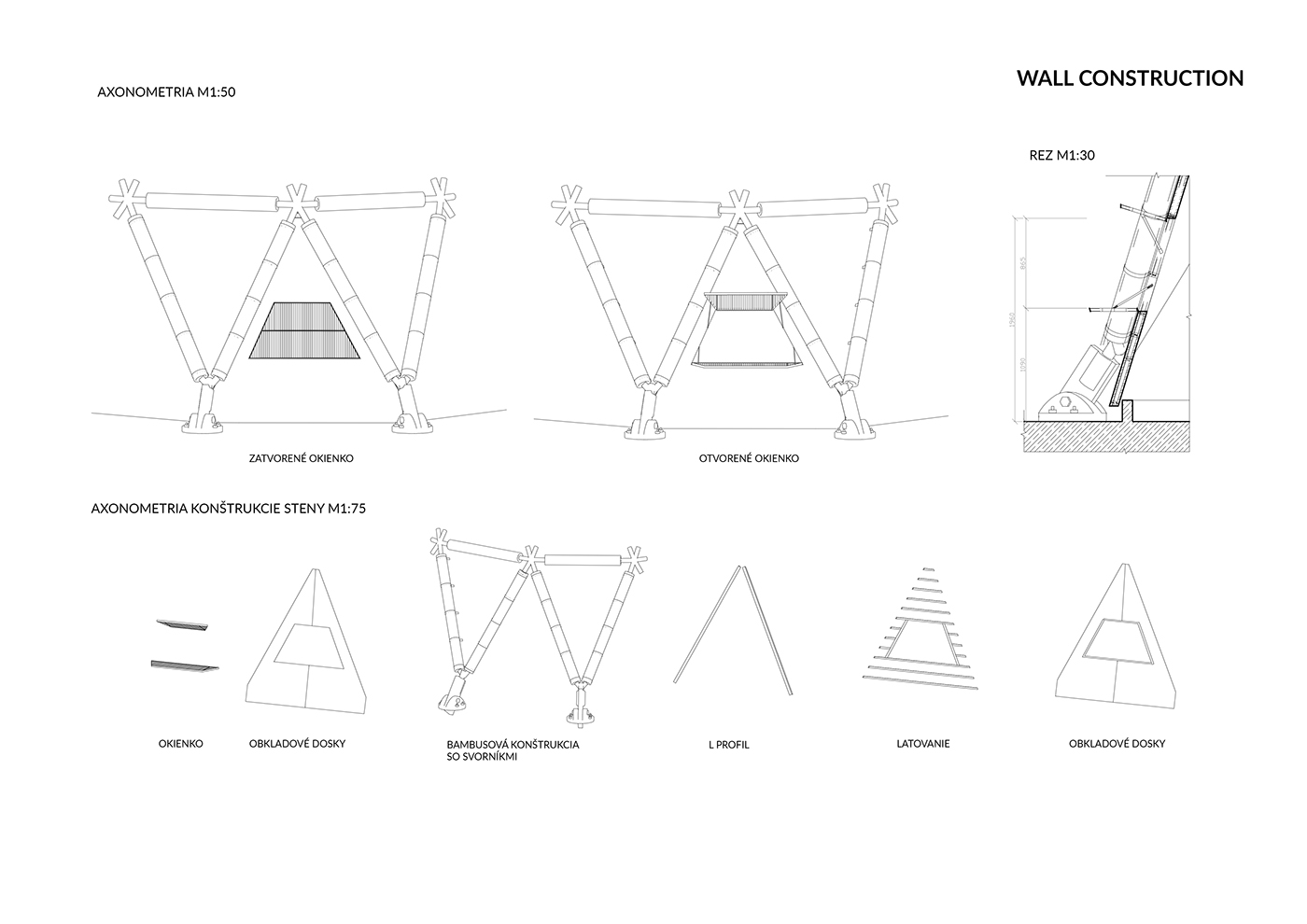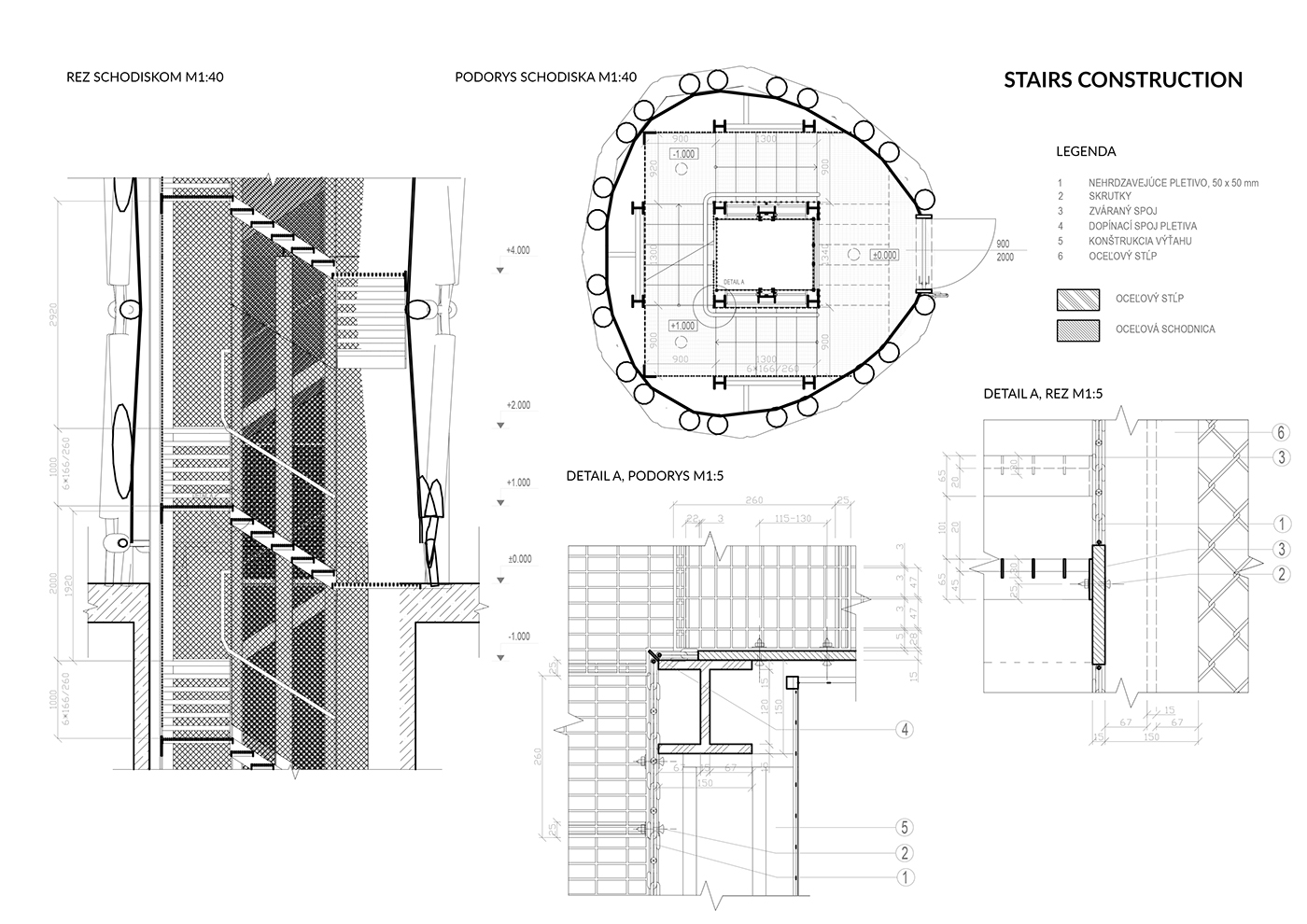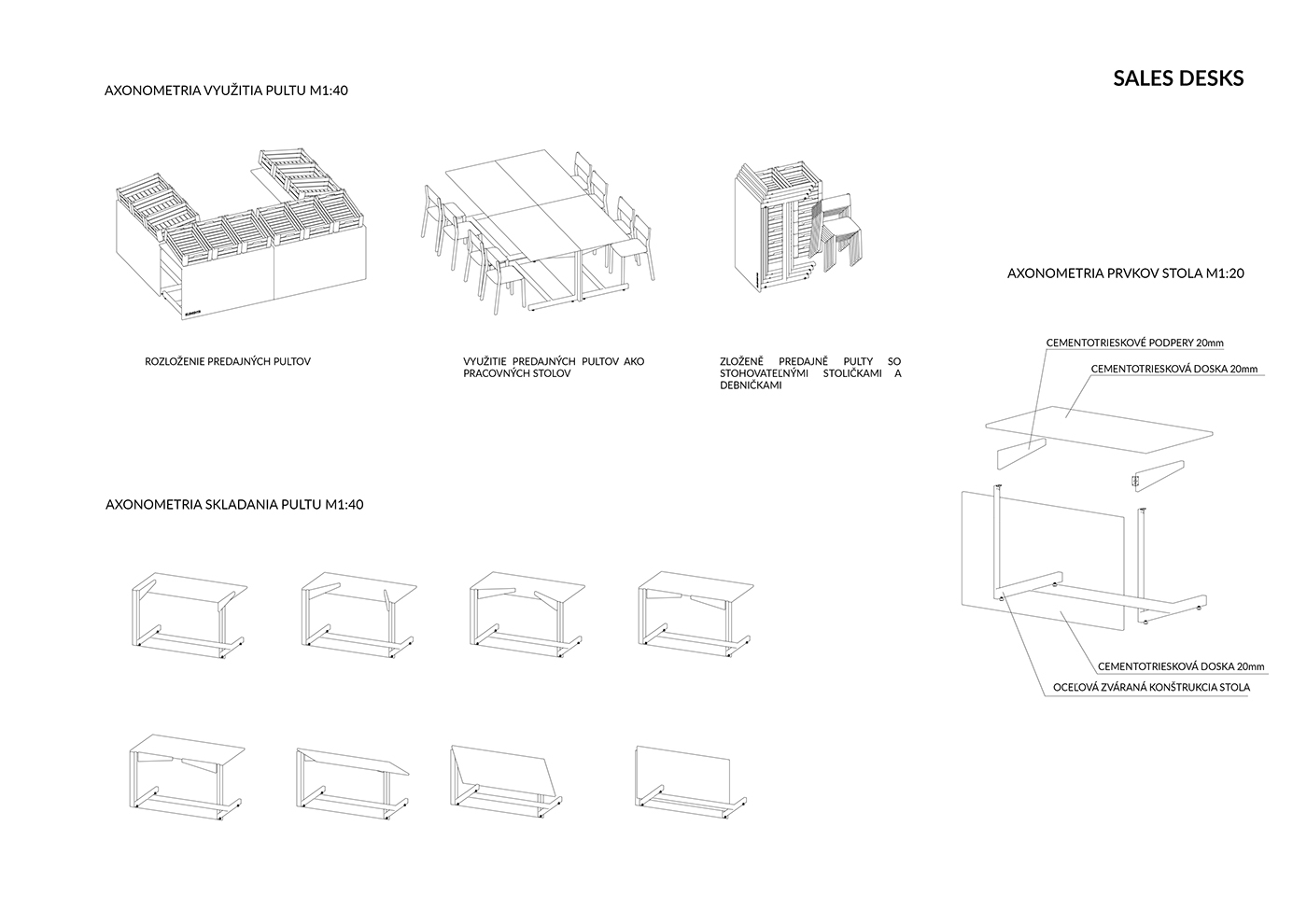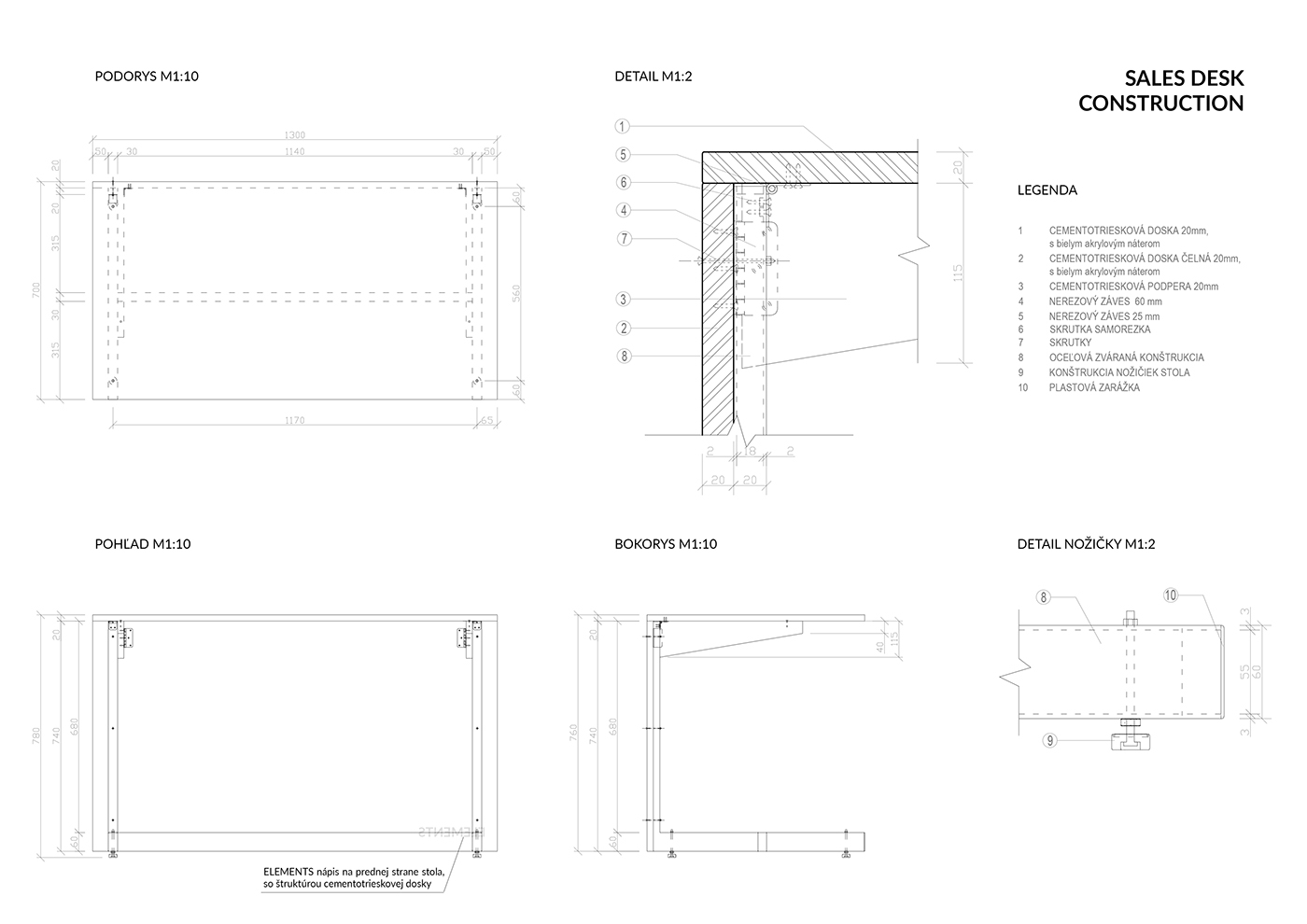ELEMENTS
WATER FOOD ENERGY
THESIS PROJECT, FA STU Bratislava
Autor: Ing. arch. Veronika Demovičová
Main consultant: doc. Ing. arch. Peter Daniel, PhD.
Planting design consultant: Bc. Zuzana Demovičová
Construction consultant: Pavol Uhrín
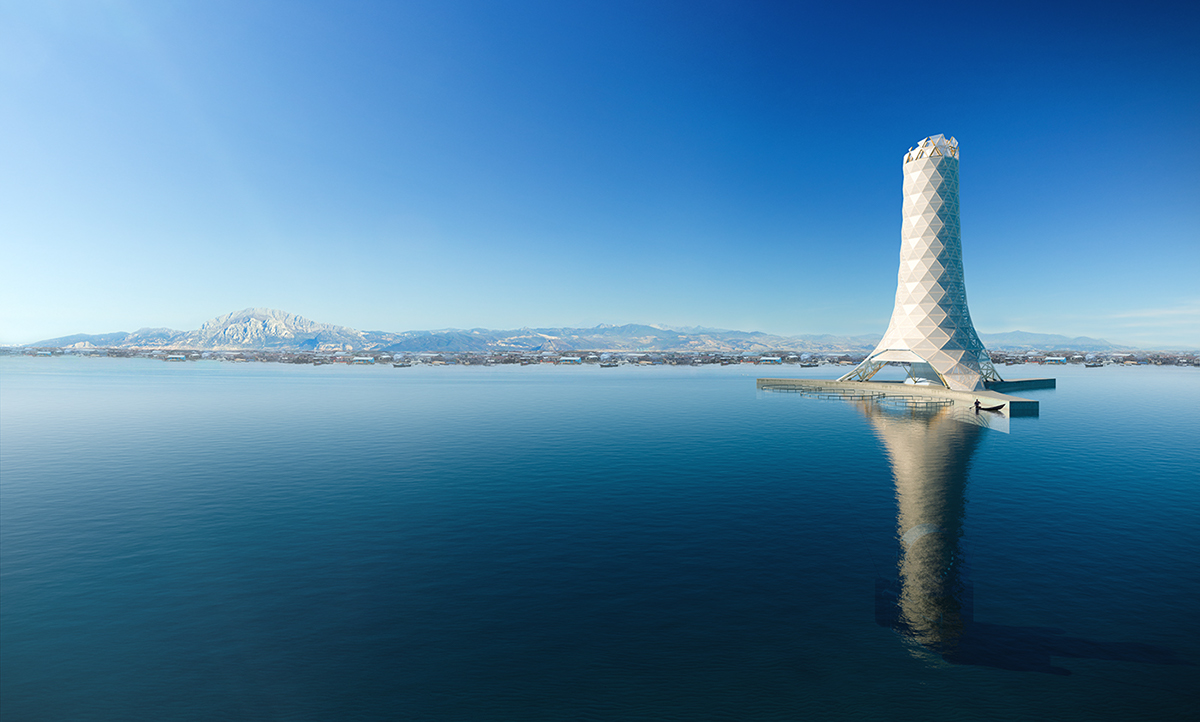
From The Telegraph, to World’s bank, major media and organizations agreed on one of the largest and most serious environmental challenge faced today. Water. According to the World Water Development Report (UNESCO) 748 million people have lack of access to healthy drinking water sources, affecting sustainable economic, environmental and social development.
Vision of the future should therefore focus on sufficient safe water available to meet basic needs of every human being, healthy lifestyle and behavior, easily reachable through reliable and affordable water supply and sanitation services, supported by widespread and efficient infrastructure. However presently, not enough resources and funds are being allocated to these objectives compared to other development sectors such as education and healthcare.
The greatest poverty closely linked to the lack of drinking water can be found in slums, home of 30% of the population living in cities. The lack of financial means to purchase clean water leads to health issues among the inhabitants, creating Sisyphean cycle of issues related to water and finance. As people here do not have the funds to purchase drinking water and basic sanitation they get deprived of opportunity for steady job and chance to pay tuition for their children, perpetuating the cycle. There is a very high mortality rate, which applies especially to children and vulnerable groups. Diseases transmitted by untreated and non-potable water, such as diarrhea, malaria and others, are among the main causes of premature death.
The greatest poverty closely linked to the lack of drinking water can be found in slums, home of 30% of the population living in cities. The lack of financial means to purchase clean water leads to health issues among the inhabitants, creating Sisyphean cycle of issues related to water and finance. As people here do not have the funds to purchase drinking water and basic sanitation they get deprived of opportunity for steady job and chance to pay tuition for their children, perpetuating the cycle. There is a very high mortality rate, which applies especially to children and vulnerable groups. Diseases transmitted by untreated and non-potable water, such as diarrhea, malaria and others, are among the main causes of premature death.
Improving drinking water, hygiene and water for building sewage networks, could bring very large benefits for the poor inhabitants of these areas. It is therefore essential to invest in these poor areas to acute need, and important to find one or more solutions to the problems in this cycle of intractable problems. The solution to these problems would lead to economic ramp-up and resolve the basic human right, access to clean drinking water.
Water is an essential element for the production of foodstuffs but is also great renewable source for creating electricity. It is therefore important to invest water structure. However, time to address these problems is rapidly running out. By 2050, agriculture will need to produce 100% more food in slums, and 60% around the world, making it viable to solve the biggest problems with water today, in poorest regions of the world and not to wait until the local conflicts over water will become worldwide. Return on investment as estimated by UNESCO document ‘War Water Development’ is at $ 5 to $ 28 on each dollar.
One possible solution to these problems can by architecture. Architects who work to find solutions to issues associated with private and public spaces, should also find one to the global challenges and crises.
Water is an essential element for the production of foodstuffs but is also great renewable source for creating electricity. It is therefore important to invest water structure. However, time to address these problems is rapidly running out. By 2050, agriculture will need to produce 100% more food in slums, and 60% around the world, making it viable to solve the biggest problems with water today, in poorest regions of the world and not to wait until the local conflicts over water will become worldwide. Return on investment as estimated by UNESCO document ‘War Water Development’ is at $ 5 to $ 28 on each dollar.
One possible solution to these problems can by architecture. Architects who work to find solutions to issues associated with private and public spaces, should also find one to the global challenges and crises.
Water desalination is one of the solutions in poor coastal slums. Architecture can be designed as a kind of working machine which features desalination and other additional functions.
In this case, the skyscraper focused on three global challenges, drinking water, food production and electricity production. They’re three basic elements that affect the entire design of the building. Production of the drinking water through desalination of sea water in the faced, vertical farming in spaces across the whole height of the building and production of electricity from underwater energy using tidal waves.
A high-riser can be placed on the bank of any coast in equatorial regions of Africa, America and Asia. It’s accessible by fishboats or larger vessels. The skyscraper can under ideal conditions produce 25,000 liters and houses 46,000 plants.
A high-riser can be placed on the bank of any coast in equatorial regions of Africa, America and Asia. It’s accessible by fishboats or larger vessels. The skyscraper can under ideal conditions produce 25,000 liters and houses 46,000 plants.
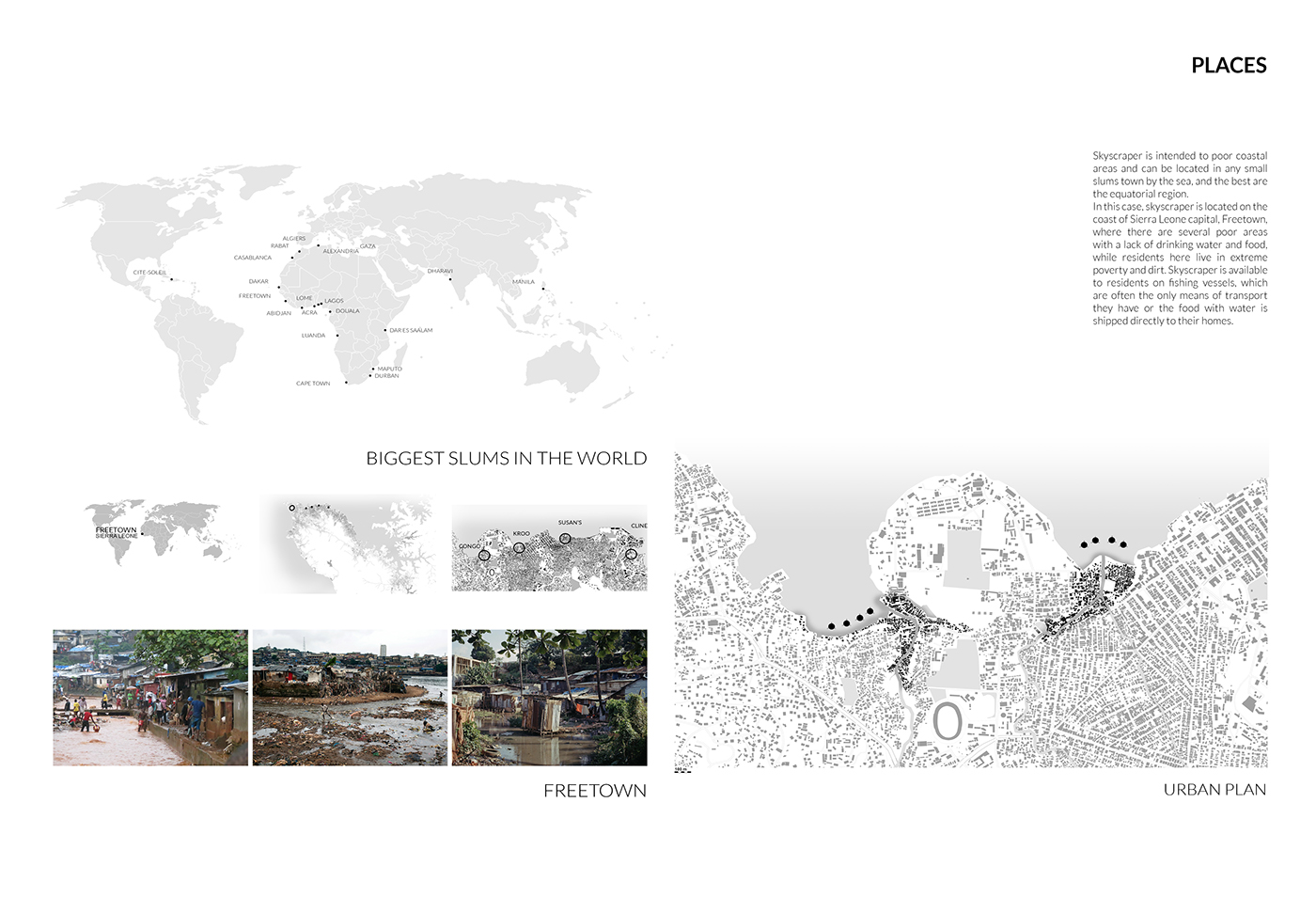
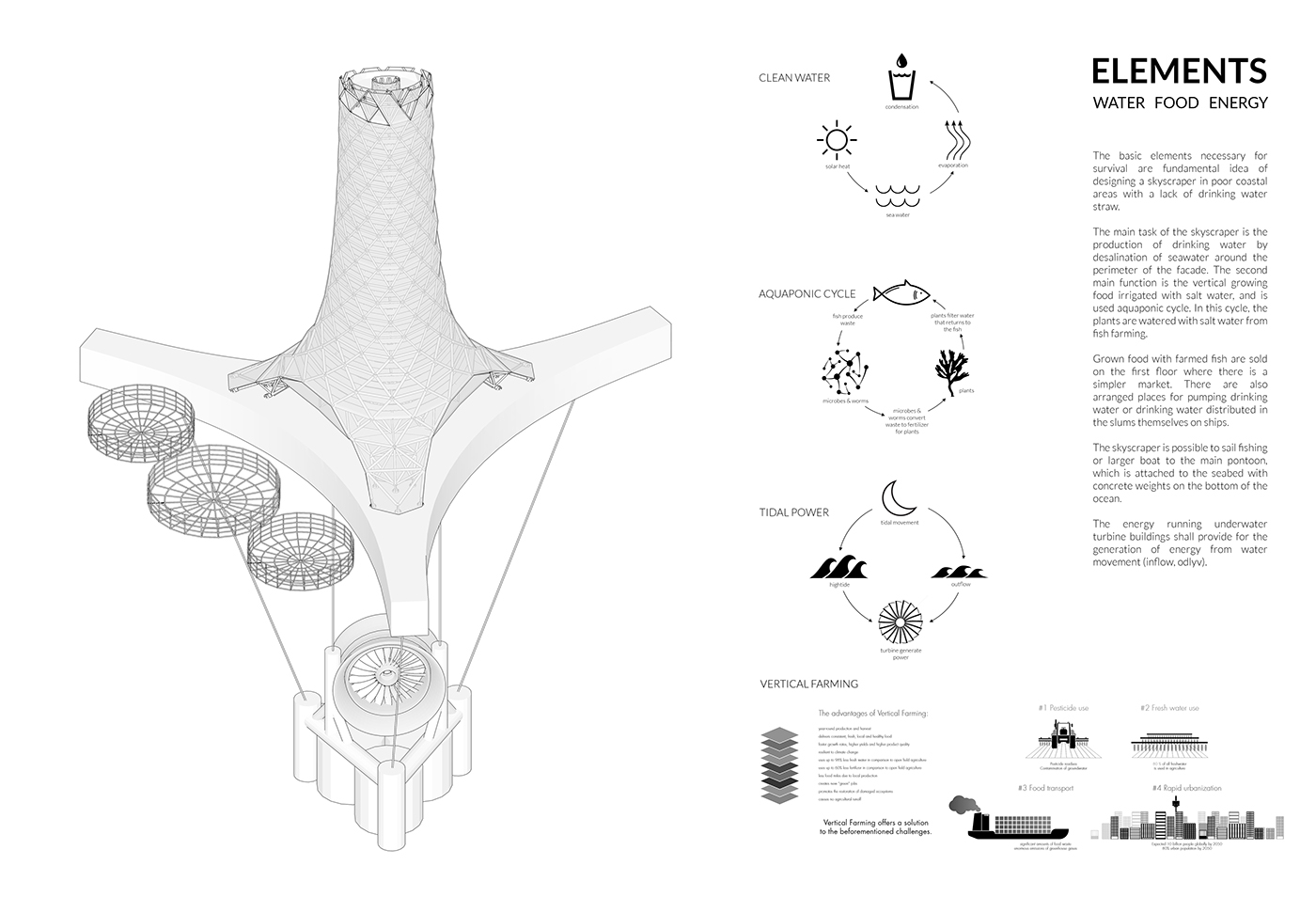

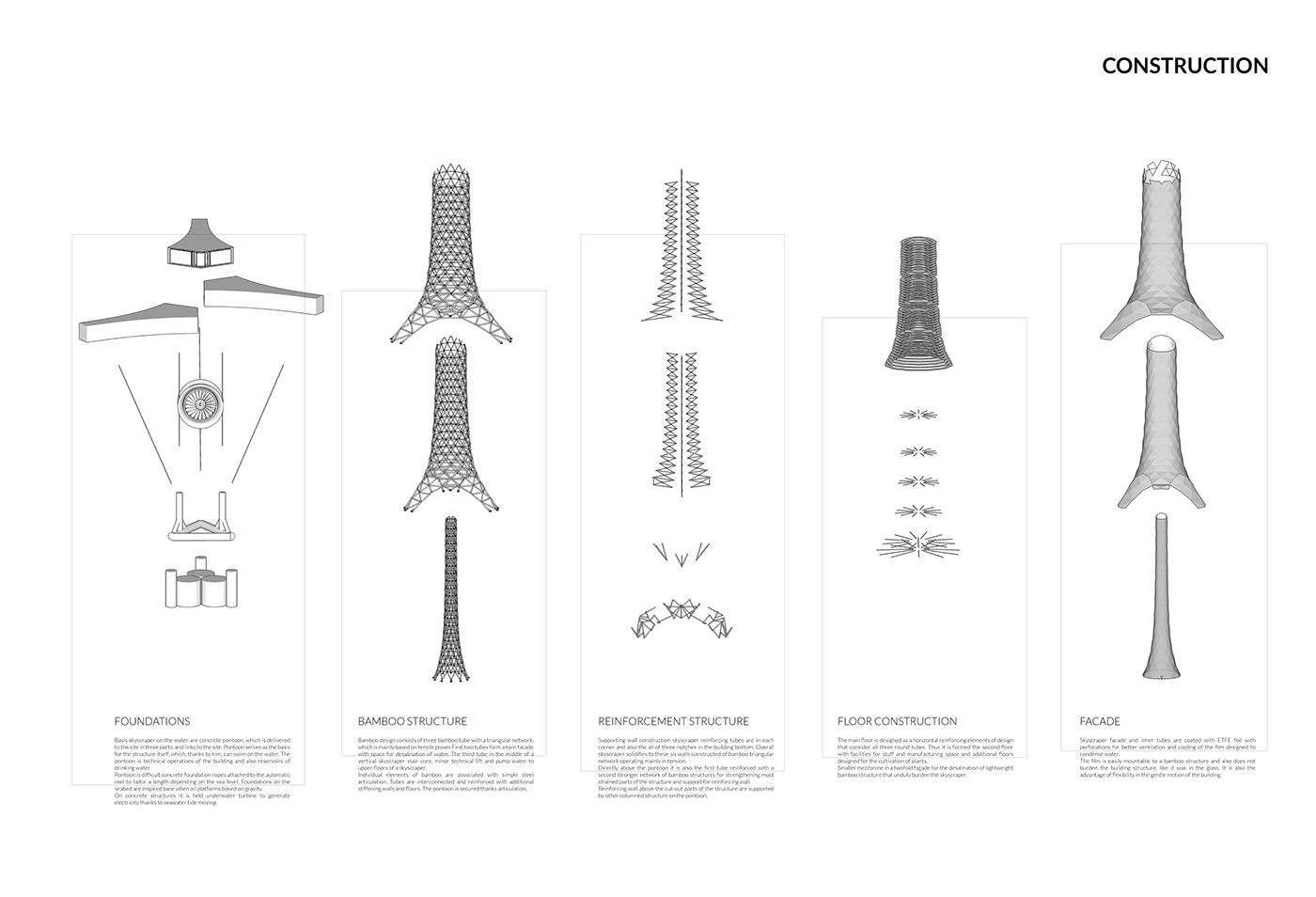
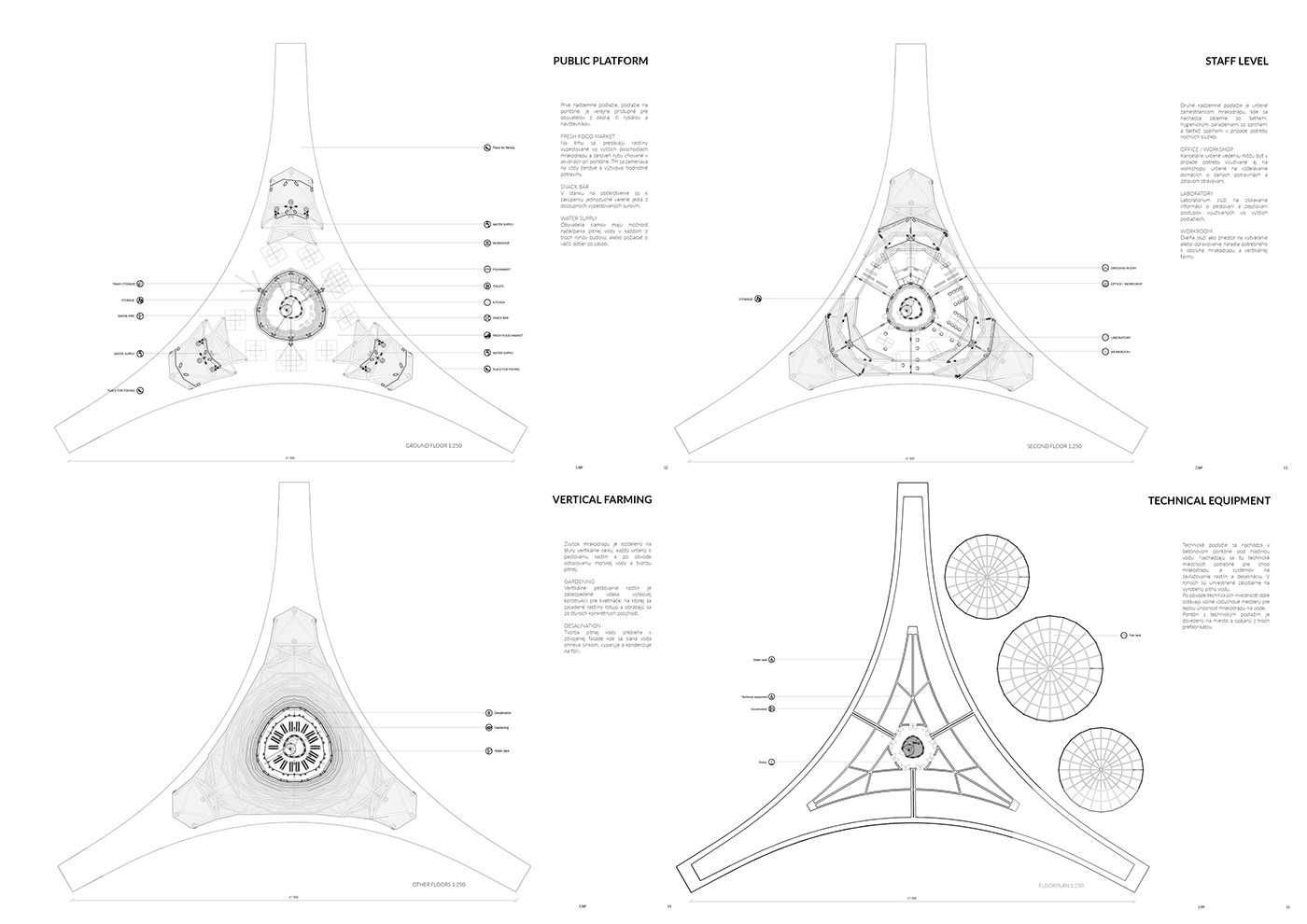
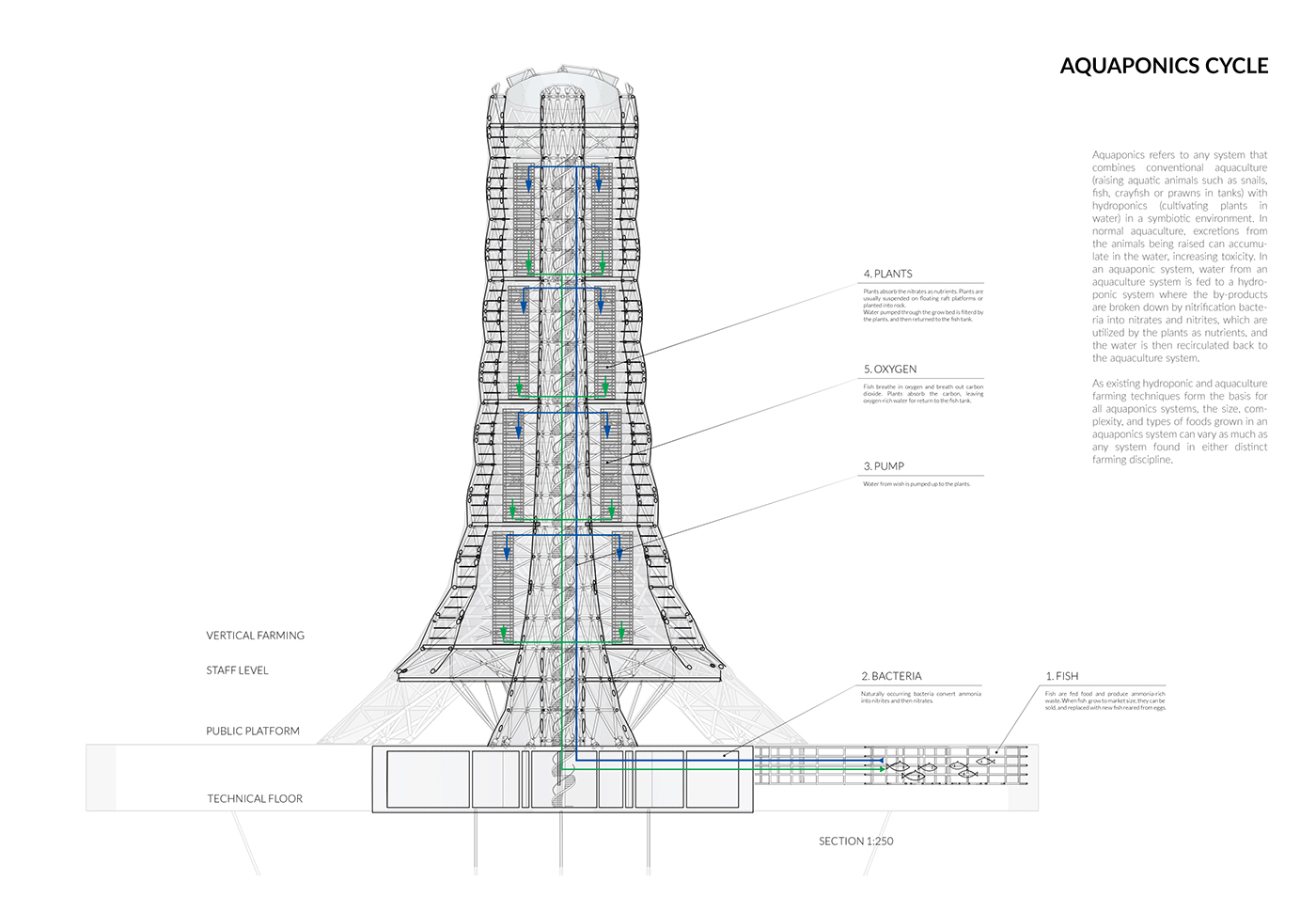
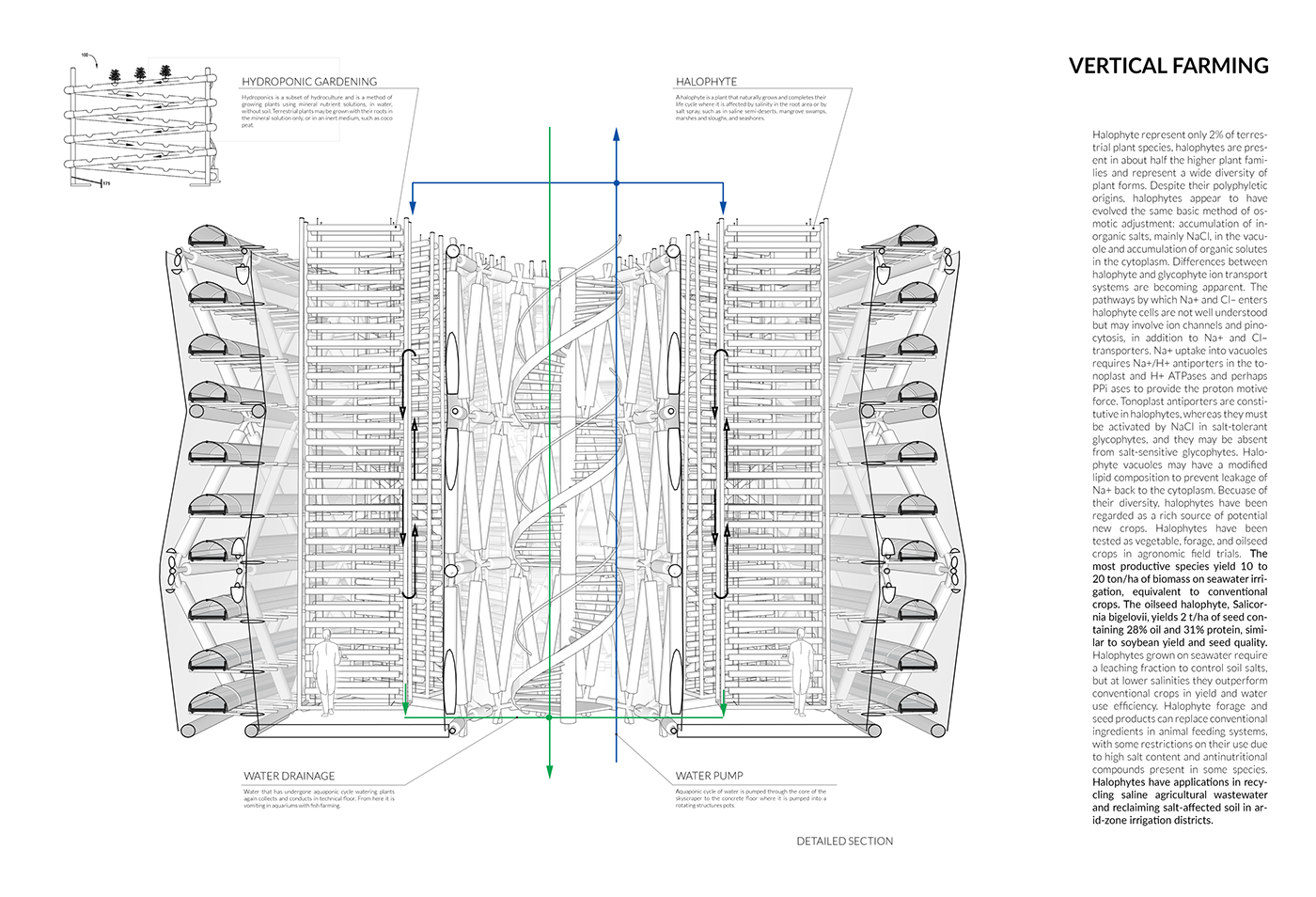
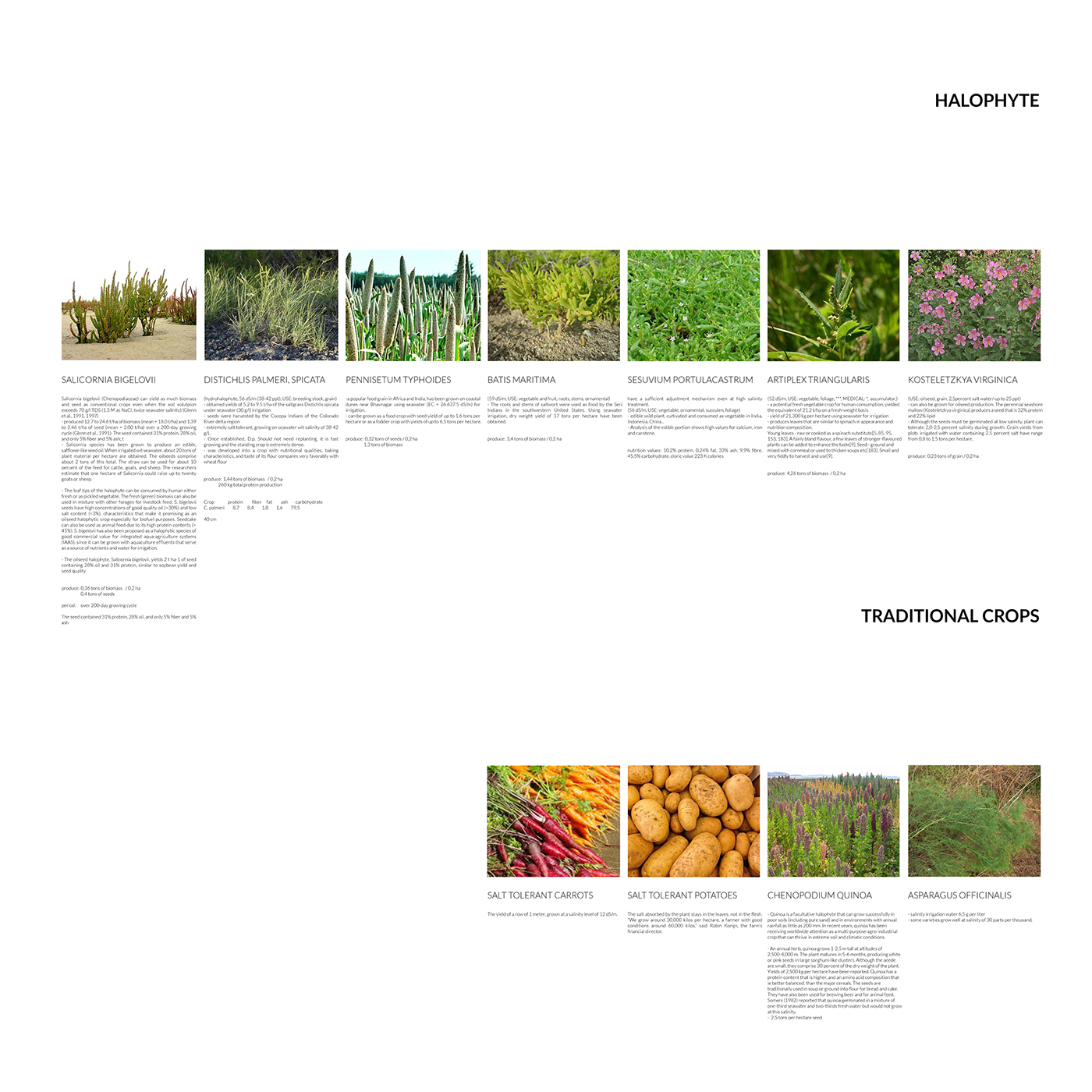
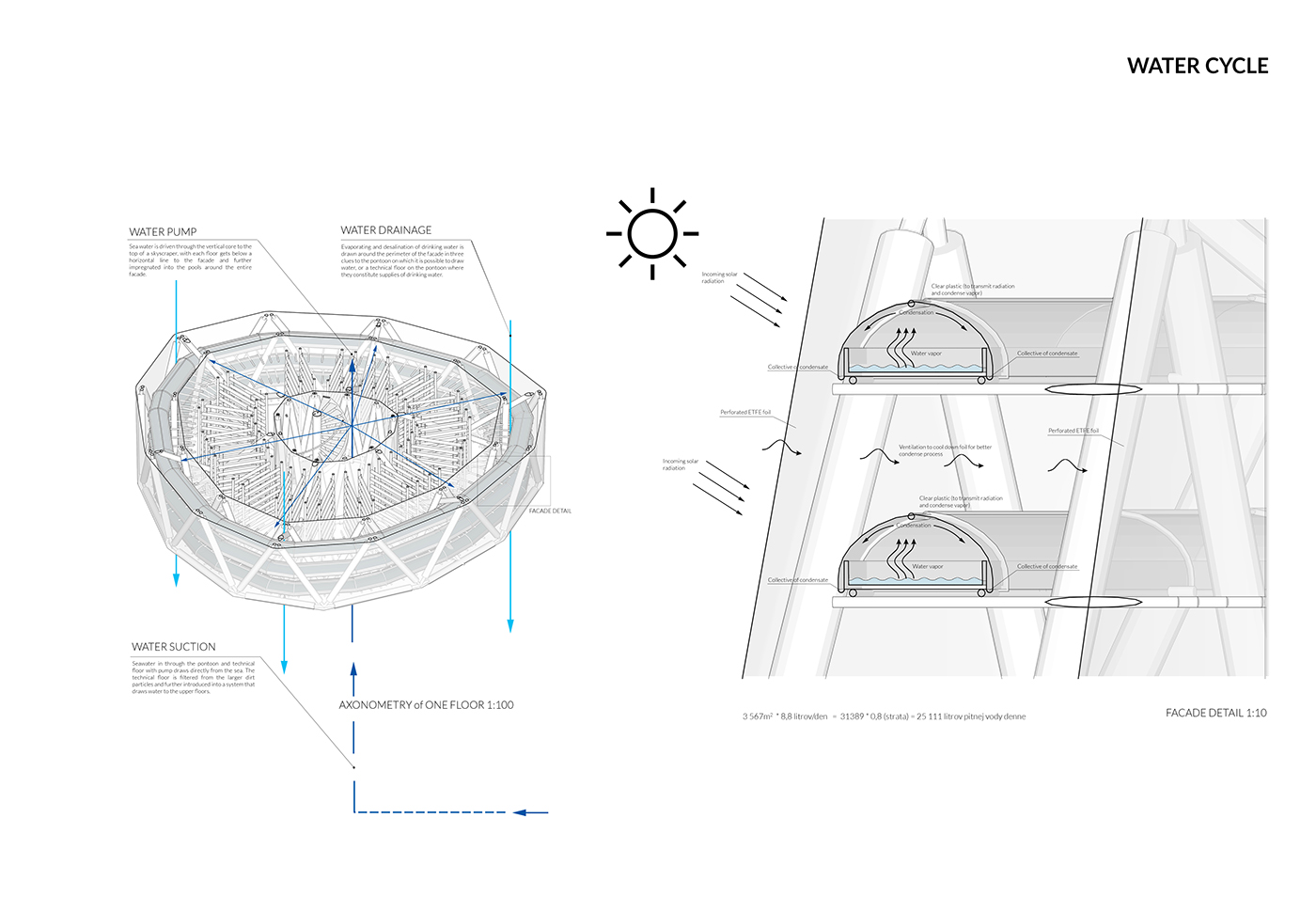
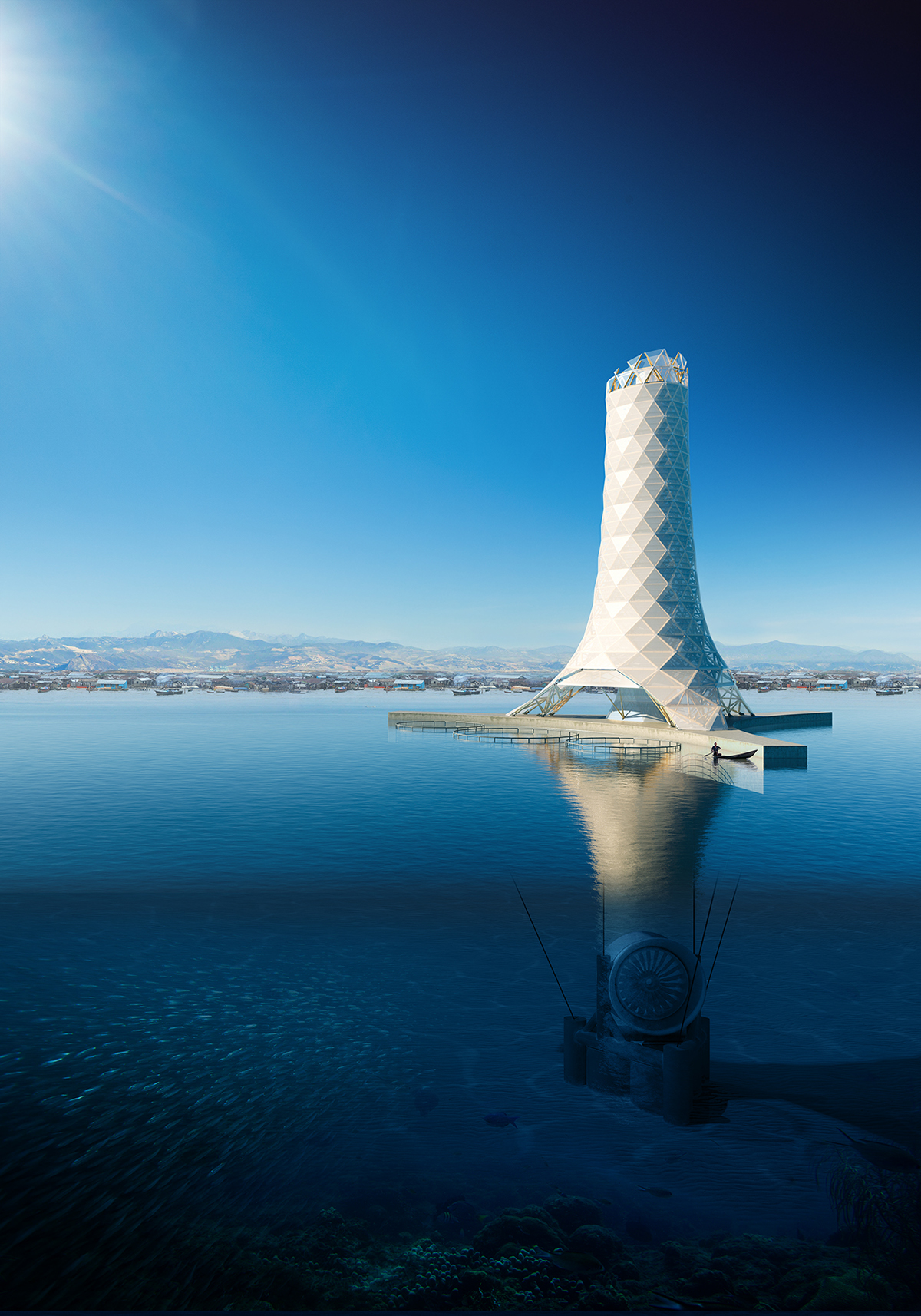
PUBLIC PLATFORM
The proposal responds to the acute shortage of drinking water and food shortages in poor slums in coastal areas, creating potable water through desalination and growing halophytes plants. Access to these key ingredients to inhabitants of slums happens in public areas of skyscraper whose design and further execution are the main subjects of solution diploma work. A key aspect of the proposal is simplicity, functionality and accessibility of the space.

